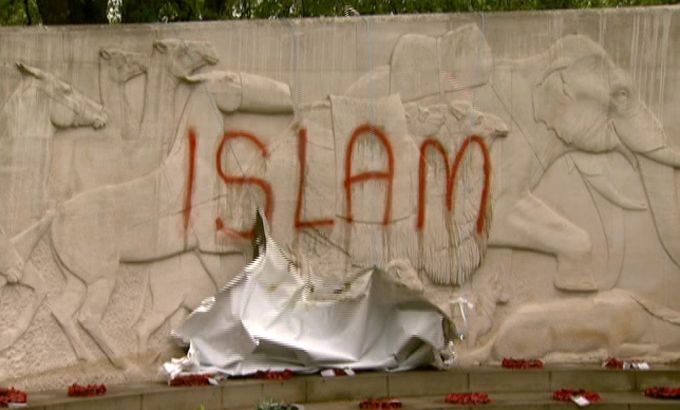
Can the UK end religious violence?
We examine how big a threat the increase in anti-Muslim attacks is to the social fabric of the UK.
There has been a disturbing increase in anti-Muslim attacks in the UK after the murder of a soldier in May. A number of mosques and Islamic institutions in the UK have been the target of arson attacks in recent weeks.
An Islamic Centre in North London and an islamic boarding school in South London were set on fire last week in an apparent hate crime attack.
They all ideologically believe that Muslims are the other and out to create a narrative that is increasingly accepted and unchallenged within Britain that the Muslim community are violent, savage, barbaric, their religion has nothing to offer and is extreme.
A mosque in Brixton was vandalised after a window was smashed last month and the Islamic centre in Milton Keynes was petrol bombed.
The Muslim community in the UK has also been subject to abuse on the internet.
It has all happened in the wake of the murder of British soldier Lee Rigby in southeast London last month.
In the weeks since the murder of Lee Rigby by self-professed Islamists, police in Britain have reported a marked increase in anti-Muslim hate crimes.
“We normally average one Islamophobic incident a day, about 35 hate crimes – we separate them out. We’re currently experiencing about eight incidents a day on average – so there has been an increase, a lot if those incidents are name calling and criminal damage, and a number of them are more serious types of crimes like the one on Saturday that we’re talking about and the one last week at the community centre,” said Simon Letchford from the Metropolitan Police.
The English Defence League has been accused of fuelling racial hatred. The League denies any involvement in attacks, but its members say they are dedicated to protesting against “islamic extremism”.
Meanwhile, Britain’s Home Secretary Theresa May has spoken out against attacks on Muslim targets, which she described as deplorable.
“As I said at the time, this was not just an attack on an individual soldier, it was an attack on everyone in this country – people of all faiths and of none,” said May about the Woolwich murder.
Muslims say they want the British government to stop the violence.
But is the government capable of putting an end to these attacks? And how much of a threat are they to the social fabric in the UK?
Inside Story, with presenter Veronica Pedrosa, discusses with guests: Matthew Tariq Wilkinson, the director of Curriculum for Cohesion; Asghar Bukhari from Muslim Public Affairs Committee UK; and Mohammed Shariq, a founding member of the Ramadhan Foundation.
|
“Let’s be honest. We’ve had a problem of anti-Muslim hatred and attacks in our community since September 11, but actually over the past few years we’ve been able to work better with all parts of our society to build cohesive societies. But the problem is that we’ve got a mindset among a minority of extremists and terrorists – the ideological mindset that somehow terrorism and violence is acceptable.” – Mohammed Shariq, a founding member of the Ramadhan Foundation |